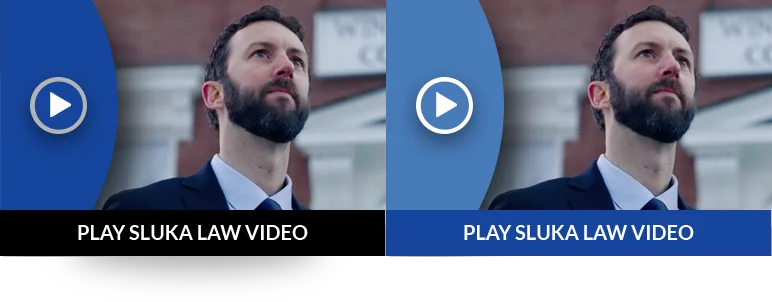Vermont Teacher Workplace Injury Lawyer
When you think about dangerous or hazardous occupations, teaching probably doesn’t immediately come to mind. Unless you are a teacher. If you are an educator in one of the hundreds of public and private schools in Vermont, you are probably well aware of the injury risks you encounter every day.
Teachers in Vermont are covered under the state’s workers’ compensation system. Teachers injured on the job have up to six months to file a claim for workers’ comp, and school districts must file a report with the labor department within 72 hours of receiving notice of an injury. Teachers hurt on the job can have all their medical bills paid by workers’ comp, and if they are out of work temporarily because of their injury, or if they are able to work only at a lesser rate of pay, they are entitled to wage replacement benefits while they are recovering. Teachers who are permanently disabled can receive a settlement according to the severity of the injury and its impact on their life.
Workplace injuries can result in functional limitations and chronic pain that limit one’s ability to work, move, function and enjoy life. Despite how severe and limiting these injuries can be, workers’ compensation insurance carriers are often hesitant to approve claims. Instead, they hire claims adjusters and doctors to dispute that an injury is work-related, how severe it is, or what kind of treatment is required. This kind of pushback is especially strong when it comes to the types of accidents and injuries suffered most often by teachers in Vermont. If this happens to you, a workers’ compensation attorney at Sluka Law can help you get the care and compensation you need and deserve. Attorney Justin Sluka has many years of experience in Vermont workers’ compensation practice, including nearly 20 years defending employers and insurance companies. He knows workers’ compensation claims inside and out and can help you when the insurance company delays or denies your claim or underpays or cuts off your benefits. Call a Vermont teacher injury lawyer at Sluka Law for help with a workers’ comp claim after an on-the-job injury in a school.
Common Workplace Injuries for Teachers
Teachers in Vermont can suffer an on-the-job injury in numerous ways. These are some of the most common.
Slip and Fall
Teachers can slip and fall on a food or drink spill in the cafeteria, teacher’s lounge or hallway, in the bathroom, or on any floor that has recently been mopped, buffed or waxed. Parking lots, sidewalks and entrances on rainy, icy, snowy or sleety days can be especially treacherous as well. Torn carpeting, misplaced floor mats, broken or missing floor tiles, broken steps and handrails, and countless other maintenance issues can create a dangerous premises for teachers rushing to class or navigating a crowded hallway or stairwell.
Repetitive Motion Injuries
Teachers spend hours on their feet or at their desks, bending and stooping, reaching overhead to write on chalkboards or whiteboards, typing on the computer, and handwriting to grade and comment on student papers. These tasks take their toll over the years, especially if the teacher’s workspace is not ergonomically designed. Repetitive motion injuries can require medical treatment from medication and rest to physical therapy and surgery. They are compensable under Vermont workers’ compensation law.
Toxic Exposure
Chemistry teachers, art teachers, and shop teachers face exposure daily to harmful chemicals, but teachers in any classroom can be at risk of exposure to toxins such as mold, lead and asbestos. Lead-based paint was used well into the end of the 1970s, and many Vermont schools may still contain lead-based painted surfaces. If the paint is chipping or peeling, dangerous particles can be released that get inhaled and build up in the teachers’ systems over time. School renovation projects can raise the risk if not handled properly, as lead paint is rubbed, sanded or scraped and escapes into the air as fine particulates.
For decades, asbestos was a building material of choice in schools. By the mid-1970s, 75% of Vermont schools tested positive for asbestos-containing materials. The EPA Asbestos Hazardous Emergency Response Act (AHERA) for Schools requires inspections, management plans, and awareness training. The Vermont Health Department performs periodic AHERA inspections; any school built after 1988 should be certified asbestos-free, but older facilities need regular inspection and appropriate abatement.
Stress
Teaching can be a high-pressure, stressful profession, and a work-related event or work-related stress can create a mental condition compensable by workers’ compensation. Teachers must be able to prove that the event or stress was extraordinary and unusual compared to pressures and tensions experienced by the average employee across all occupations and also that the event or stress was the predominant cause of the mental condition. If those factors are present, teachers can receive medical care and lost time pay for a mental condition caused by work-related stress.
Violence
Despite its unimaginable horror, bullying and violence in schools is a problem that won’t go away but if anything seems to be getting worse. Aside from these dramatic incidents, teachers face the risk of violent injuries daily, whether having to wade in and break up a fight among students or being the target of a violent assault themselves. Vermont workers’ compensation law covers “personal injury by accident arising out of and in the course of employment” and specifically defines personal injury to include “an injury caused by the willful act of a third person directed against an employee because of that employment.” Teachers attacked by students can get workers’ compensation for their injuries.
Help Is Here for Injured Teachers With Workers’ Compensation Claims in Vermont
If you are a Vermont teacher who has been injured on the job and who is having trouble getting the benefits you are owed under workers’ compensation, call Sluka Law at 802-457-1000. Your consultation is free, and we only charge a fee if we win your case.

